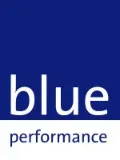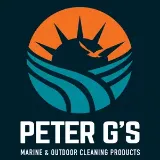Close
-
Accessories
-
Blocks
-
Boating Hardware
-
Cars & Tracks
-
Cleats & Clutches
-
Hatches & Ports
-
Marine Plumbing
-
Poles & Accessories
-
Rope & Cordage
-
Sail Systems
- Brands
- Stockists
-
Accessories
- Back
- Ball Stoppers
- Boat Bungs & Drain Sockets
- Boat Care & Cleaning Products
- Burgees & Wind Indicators
- Canvas
- Chafe & Wear Tapes
- Door Cabinet Latch Push Button
- Dorades
- Hooks & Clips
- Labels & Stickers
- Lights & Guards
- Man Ship Deck Fills
- Race Packs
- Railfast
-
Rope Accessories
- Back
- PROtect Rope
- Sail Repair Tapes
- Sailing Gloves
- Spare Parts
- Splicing Tools
- Tapes
- Wear Pads
-
Blocks
- Back
- Accessories for Blocks
- Barton Series Blocks
- Blocks for Sails
- Cheek and Foot Blocks
- Classic Dinghy Blocks - Allen
- Deck Organisers
- Dynamic Bearing Blocks - Allen
- Exit Boxes
-
Halyard & Control Blocks
- Back
- Stand-Up Blocks
- High Load - XHL and XXL Blocks
- Looper Series - Antal
- Mainsheet Systems
- Mini Stainless Steel Blocks - Antal
- OPF Series Blocks - Antal
- Plain Bearing Blocks
- Ratchet Blocks
- Schaefer Series Blocks
- Sheaves
- Snatch Blocks
- Stanchion Mounted Blocks
- Tuphblox
- Vertical Blocks
- Wire Blocks
- Wooden Classic Blocks - Barton
-
Boating Hardware
- Back
- Boom Brake
- Davits - Hoists & Lifts
- Deck Bushes
- Dog Bones
- Fairleads
- Furling Systems
- Gooseneck Fittings
- Hiking & Trapeze Equipment
- Hydraulics
- Low Friction Rings
- Mechanical Stay Adjuster
- Miscellaneous Hardware
- Pad Eyes & U Bolts
- Rigging & Spar Fittings
- Roll-X-Flopper Stopper
- Rudder & Tiller Accessories
- Shackles
- Soft Links
- Stanchions
- Stay & Vernier Adjusters
- Vangs - Struts & Yacht Rods
- Winches
-
Cars & Tracks
- Back
- Dinghy Traveller - Barton
-
End Stop - Antal
- Back
- 40 x 8 Track
- Fairleads & Jib Sheet Lead - Allen
- Genoa Cars - Schaefer
- Genoa Cars & Sliders - Barton
- Genoa Systems - Antal
- Halyard Systems - Antal
- Mainsheet Systems - Barton
- Self Tacking Jib System - Allen
- Self-Tacking Systems - Antal
- T-Track & Accessories - Antal
- Track - Schaefer
- Track Slides & Accessories - Schaefer
- Tracks - Cars & Accessories - Allen
- Travellers - Schaefer
-
Cleats & Clutches
- Back
- Aluminium Cleats - Schaefer
- Cam Cleats
- ClamCleat®
- Clutches
- Jam Cleats - Allen
- Mainsheet Jammer - Allen
- Mast & Deck Cleats
- Mast & Deck Cleats - Allen
- Nylon Cleats - Barton
- Pump Action Cleat - Allen
- Quick Cleat - Barton
- Roller Cleat - Antal
- Stainless Steel Cleats & Chocks
- Swivel Cleats - Allen
- V Cleats - Allen
-
Hatches & Ports
-
Marine Plumbing
-
Poles & Accessories
- Back
- Carbon Whisker Poles
- External Trip Spinnaker Pole End's
- Internal Trip Spinnaker Pole End's
- Jockey Pole & Reaching Struts
- Line Control™ Whisker Poles
- Pole & Mast Fittings
- Socket / Inboard Ends
- Spinnaker Pole Cars
- Spinnaker Pole End Fittings
- Spinnaker Pole Storage
- Spinnaker Poles
- Tri-Reacher Pole
- Twist Lock Whisker Pole
-
Rope & Cordage
- Back
- Cruising Yacht Ropes - LIROS
- Dinghy Ropes - LIROS
- Flightsport - LIROS
- Industrial - LIROS
- Mooring & Anchoring - LIROS
- Offroad Ropes - LIROS
- Outdoor Ropes - LIROS
- Performance Yacht Ropes - LIROS
- Sailmaker - LIROS
- Shockcord & Attachments - LIROS
- Soft Shackles - LIROS
- Theatre & Stage Rigging - LIROS
- Traditional Ropes & Natural Fibre - LIROS
- Whipping Twine & Cords - LIROS
- XTreme Technology - LIROS
-
Sail Systems
- Back
- Batten Receptacles - Antal
- Battslides - Schaefer
-
Fibreball Systems - Full Batten - Antal
- Back
- Boats up to 50 Feet
- Foresail Furlers - Bamar
- Furling Gear & Swivels
- Hook Carriages - Full Batten Systems
- HS and FB Track & Accessories - Antal
- HS Guide System Full Batten - Antal
- Lazy Jack - Schaefer
- Lazy Jack Kits - Barton
- Mainsail Furling
- Optional Evo - Bamar
- Protect Tapes Headfoil
- Reefing - Schaefer
- Reefing Kit - Barton
- ROLLGEN - Furling Systems
- Sail Hardware
- Tuff Luff
- Brands
- Stockists
Close
You have no items in your shopping cart.
Newsletter
Get E-mail updates about our latest shop and special offers.
Wait...

Quick Links
Customer Service
Stay In Touch
- Contact us
We are a Family Business Distributing Sailing, Marine and Industrial Brands.
























































































































































































